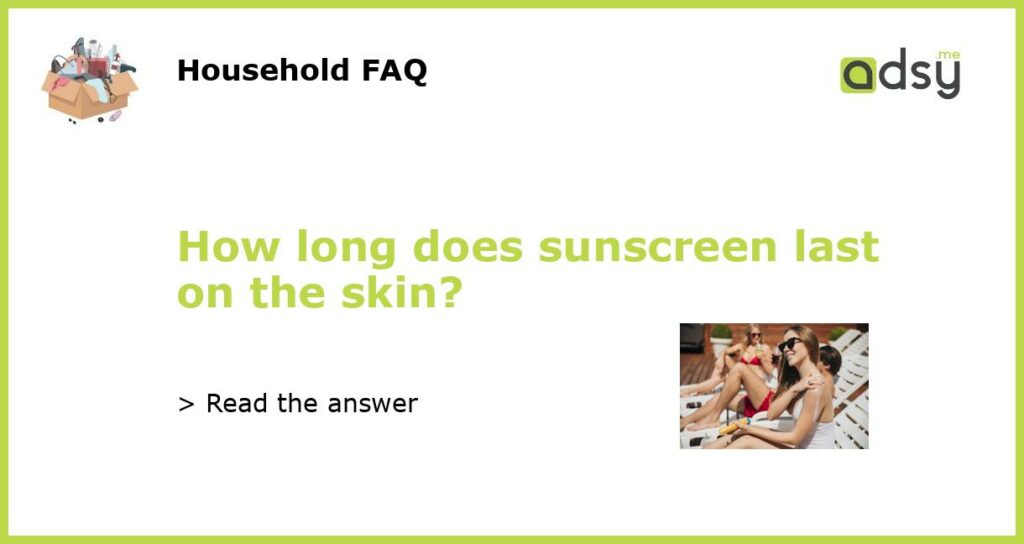How long does sunscreen last on the skin?
Sunscreen is a crucial part of any skincare routine, providing protection against harmful UV rays that can cause sunburn and long-term skin damage. However, it is important to understand that sunscreen does not last indefinitely on the skin. The duration of sunscreen’s effectiveness depends on several factors, including the type of sunscreen, its SPF rating, and individual factors such as sweating and swimming.
How long does sunscreen typically last?
The duration of sunscreen’s effectiveness is measured by its sun protection factor (SPF). Generally, sunscreen with SPF 30 can provide protection for approximately two hours. However, it is important to remember that this is just an estimate, and many factors can affect how long sunscreen lasts on the skin.
The way sunscreen is applied can also affect its duration of effectiveness. It is recommended to apply sunscreen liberally and evenly to all exposed areas of the skin. This ensures that the sunscreen creates a protective barrier that can help shield the skin from the sun’s harmful rays. Applying a thin layer or not applying enough sunscreen may result in reduced effectiveness and a shorter duration of protection.
What factors affect the duration of sunscreen?
Several factors can affect how long sunscreen lasts on the skin:
- Sweating and rubbing: If you are sweating heavily or constantly rubbing your skin, the sunscreen may wear off more quickly. It is recommended to reapply sunscreen every two hours, especially during outdoor activities that involve sweating or water exposure.
- Water exposure: Sunscreen can wash off when in contact with water, reducing its effectiveness. It is important to choose a water-resistant sunscreen and reapply it after swimming or excessive sweating.
- Sun intensity: The strength of the sun’s rays can affect how long sunscreen lasts on the skin. If you are exposed to intense sunlight or are spending an extended period outdoors, you may need to reapply sunscreen more frequently to maintain protection.
- Sunscreen type and formulation: Different sunscreen formulas have varying levels of staying power. For example, chemical sunscreens may absorb into the skin more quickly and may need to be reapplied more frequently compared to physical sunscreens that create a protective layer on the skin’s surface.
Why is it important to reapply sunscreen regularly?
Reapplying sunscreen regularly is crucial to maintain its effectiveness and protect the skin from harmful UV rays. Even if a sunscreen claims to be water-resistant, it is still recommended to reapply it after swimming, sweating, or towel-drying, as these activities can cause the sunscreen to wear off. Additionally, the act of rubbing or wiping your skin with a towel may remove sunscreen, making it necessary to reapply for continued protection.
It is also important to note that sunscreen can break down over time, especially when exposed to heat and sunlight. Therefore, it is advisable to check the expiration date on your sunscreen and replace it if it has expired to ensure maximum protection.
In summary, sunscreen does not last indefinitely on the skin. Its effectiveness depends on various factors, including the SPF rating, application method, sweating, swimming, sun intensity, and the type of sunscreen used. Reapplying sunscreen every two hours, or more frequently when sweating or swimming, is recommended to maintain adequate protection against harmful UV rays. Remember to choose a sunscreen that suits your needs, apply it generously, and check for expiration dates to ensure maximum effectiveness.






